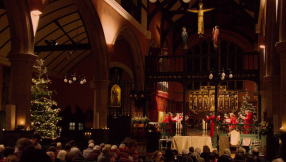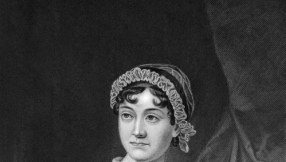
An important report on 'Theology and Religious Studies Provision in the UK Higher Education' was published by the British Academy recently.
For those who did not fancy a read through the 34-page document, Christian Today distilled its key findings – most significantly, a dramatic decline in the number of students enrolling onto theology courses.
The report warns that theological and religious studies are at risk of "disappearing" from universities: the number of students enrolling on university courses for Theology or Religious Studies has tumbled from 14,000 in 2011/12 to 7,585 in 2017/18 – an unprecedented fall of almost half in just six years.
Professor Diarmaid MacCulloch, who is vice-president of the British Academy and an esteemed ecclesiastical historian, told the Daily Telegraph that he was "extremely concerned" about these "very alarming" findings.
Before we go any further, I must confess that I am a theology student. I must also hasten to add that I am not here to represent any kind of higher education institution (they will be relieved to know). What follows is nothing more than my own candid reflection on a topic that is close to my heart.
Since the report surfaced last May, I have spent considerable time churning it through the confused mental cogs which make up my mind. Despite this, to be completely honest, I have not moved much further than my very first response: I don't particularly care.
It is not that this is not important news. It is. And we should take it seriously.
The report raises all sorts of questions which are well worth careful and urgent consideration – most importantly: "how have we come to this?" and "where do we go from here?"
I am not the right person to answer those questions and I'm not going to waste anyone's time trying.
However there are some questions which the rest of us might be asking and I might be able to offer my expert and absolute opinion on.
Should this news shock us?
This is easy to answer. Yes, the report should shock us. And indeed I was I was shocked to see the number of students enrolling in theology almost halve itself since 2011/12.
But, as startling as they are, I don't think it is necessarily the statistics themselves which should shock us.
Instead, what is even more surprising is that it has taken so long for these numbers to fall as dramatically as they have.
If we consider the decades-long decline in UK Church attendance alongside widespread disinterest in Christianity, it is a minor miracle that these figures had not cascaded so violently before now.

Will this feed biblical illiteracy?
I'm sure we can all agree that biblical illiteracy does not need any more feeding. Never before have so many people been able to read yet so few of them read the Bible.
Biblical illiteracy – i.e. not understanding the Bible – is more real than ever, but keeping theology in universities is not going to necessarily address that.
Being able to read and understand the Bible does not depend on academic theology: theology is the study of God, not the learning of Scripture.
Whilst some non-Christians may become more at home in the Bible because they have studied theology, this does not do anything for the countless millions who haven't a clue about Scripture and do not study theology.
If we want to address biblical illiteracy and reach more people with the Word of God, then it is Christians who need to do something about it, not theologians. Theology as a higher education subject will not be of substantial help in this respect, whether it is in university or not.
Should this news scare us?
I agree with MacCulloch: this report is alarming. However I cannot quite bring myself to agree that it should cause us great concern. (Probably because I do not have to speak on behalf of the British Academy.)
Is this just a case of some arrogant, ignorant, youthful bliss? Maybe. But maybe not.
I am not hugely concerned by the figures in this report because I do not believe for a second that we are watching the disappearance of theology altogether – merely its disappearance as a higher education course.
For Theology and Religious Studies to disappear from universities would be a big blow to theological education, but it would not be the end of everything, because neither universities nor the British Academy are the champions and defenders of theological study; the Church is.
Stripped back to its most basic level, theology is never about papers, professors, or propositions – the kind that you might find at university.
Theology is about personal revelation – the personal revelation of a God who loves us – and our attempts to understand this. Such theology can be found in streets and shops, homes and hostels, and workplaces and worship-places, as well as in libraries and lecture halls.
The God who created the cosmos wants to speak with us. He has spoken to us. Theology tries to respond and make sense of this.
Considering that the Word of the Lord endures forever, God is not going to stop speaking. Neither do I think that we will stop responding simply because one subject has disappeared from university education.
Does this mean anything for the Church?
Maybe you are thinking about heresy and right doctrine. How will we protect ourselves? You will surely not be surprised to know that university academics have spouted just as much heresy as has sometimes been shared by the Church.
The absence of Theology or Religious Studies from university prospectuses does not remove the Church of her responsibility to rebuke false teaching and continue in correct belief. If anything, it actually increases it.
University theology can be extremely helpful in our quest for truth, but it simultaneously has the potential to be a hindrance.
Either way, losing Theology and Religious Studies will not leave the Church bereft of teachers. It will not leave us more vulnerable to heresy. And neither will it ever stop us from proclaiming the Good News of Jesus Christ crucified.
It does mean that we might have to start respecting theology more. MacCulloch has suggested that a reason for the decline is that the subject is not valued enough.
I do not sit in on any university boardrooms so I cannot say whether this is true, although the numbers alone suggest that it probably is.
Either way, it does not take a genius to figure that people do not care about theology as much as they used to – whether in the Church or outside of it.
This is something to be addressed.
Religion and spirituality, albeit in ever-evolving forms, are as pertinent and prevalent in the 21st century as they ever have been, and it is imperative that we engage them in sensible and informed dialogue.
Restoring respect for theology is not therefore a vain sort of lusting after theological 'glory days'; nor is it about getting more people into university.
We re-cultivate an appreciation for theology primarily to allow people to make sense of faith, God and the world, and the Church – charged with the Word of God – should be taking the lead on this, not universities. It would be an embarrassment if we didn't.
What about outside the Church?
There are fears that if Theology and Religious Studies drop off of university menus then non-Christians (who would unlikely want to go to any Bible college) would be unable to pursue the subject.
This is a legitimate concern and it would be a huge loss.
Non-Christian theologians bring fresh arguments to sometimes stale debates. They ask questions that Christians can be scared to and provoke us to consider colourful and challenging perspectives, spurring us on to more cogent and comprehensive frames of thought.
They force us to consider why we believe what we believe – and we are all the better for it. Of course, we can still achieve this without non-Christians theologians, but maybe not to the same extent.
To lose these voices from the theological conversation would be a tremendous shame. If there is any way to keep theology open to all who want to study it – Christian or not – we really should try and find it.
So you still "don't particularly care" about this report?
The One who is the God of the universe is the God of the university also. I trust in Him.
Perhaps theology will disappear from universities, in which case theological educators across the country will have some serious self-examination on their hands. But theology cannot die. It will not die.
God will not stop revealing Himself to creation and we the Church must now more than ever be at the forefront of making sense of this.
That is the enduring and unassailable task of theological education – and thank God that you do not need a degree to do it.
We'll be alright.
Archie Catchpole is a student at London School of Theology.













